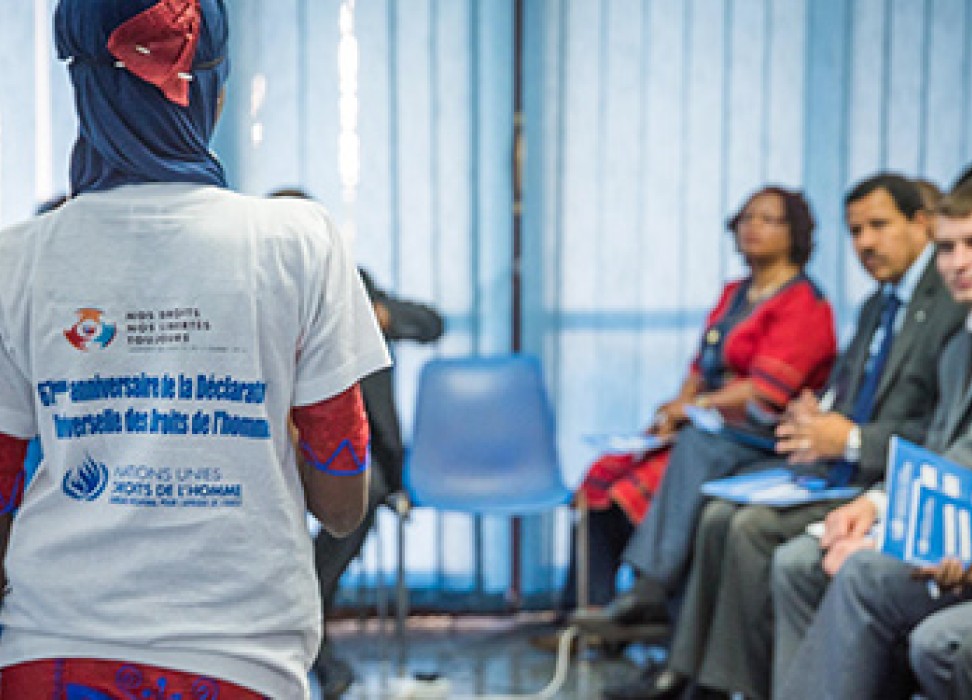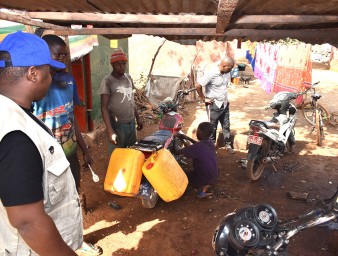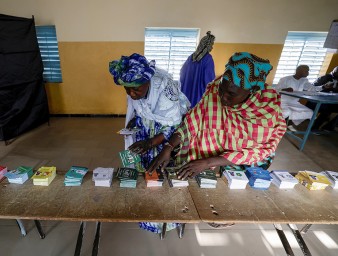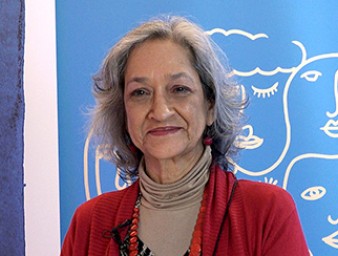In Senegal, knowing your rights can save from abuses
17 February 2016

Maïmouna Gaye* was just 15 when she started a summer job as a domestic worker in Senegal’s capital, Dakar.
“I live with my parents and siblings and our situation has always been very difficult. I wanted to help my parents because I am their eldest child,” she says.
Maïmouna’s employer seemed nice at first. She offered her a job as a stay-in domestic worker and a break every other weekend to see her family in Pikine, one of the capital’s suburbs. Her employer agreed to pay Maïmouna 25,000 CFA Francs (50 USD) per month, half of what the teenager had originally asked for. “I thought about the situation in which my family and I lived and I immediately accepted her offer in order to help my parents.”
Her first day of work started at 7 a.m. It was when she was asked to cook lunch that she learned her employer had seven children, six of which were home for the holidays and the seventh was on his lunch break from school.
“She kept harassing me, saying I was working slowly and that her son had to eat early before going back to school. She certainly did not care whether or not I was hungry because I hadn’t eaten anything all day,” she anxiously recalls. “When they finished their meal, there were only some vegetables and a tiny bit of fish left. In the end, I did not eat; I went to bed at 10 p.m., sleeping in the same room as the dog, next to the kitchen.”
Maïmouna’s second day of work was the first day of Ramadan, the main religious feast in Senegal, which requires Muslims to fast from dawn until dusk for a month. Her employer asked her to take care of the family’s laundry.
“I could not wash it all by myself. I thought: “I cannot live another day like yesterday”. That is when I decided to call my mother and explain the situation to her. She told me to come back home.”
Unlike many other young domestic workers around the world who find themselves in similar abusive situations, Maïmouna now knows her human rights. She has become an active member of the Citizenship and Human Rights Club created in December 2014 at her high school, CEM Les Martyrs de Thiaroye.
She joined the Club because she “wanted to contribute to the fight against abuses towards housemaids and unschooled girls.”
The human rights club counts 20 members, selected for their commitment to human rights, who meet every week. They have shown increased interest in activism which has triggered new behaviors. Many young girls have lived the reality of violence in school or in their homes, as well as the high risk of teenage pregnancy. The Club has provided an important space to talk about these issues, an access to information and resources for help, and a support network of peers – all of which help girls know more about their rights and stay in school.
“The Club organizes informational and educational sessions through drawing, film screenings and thematic discussions. We also organize ‘ataya’ (tea in Senegalese Wolof) briefings with level three and four students,” Maïmouna describes. “Teachers who want to get involved in the Club can moderate these briefings. Each week an article of the Universal Declaration of Human Rights is explained and discussed in class and displayed in the school.”
The Club has become an example for other schools that want to participate in the campaign. A new club dedicated to the environment was created early this year in Maïmouna’s school.
The UN Human Rights Office has supported the Club from its creation by providing financial support and tools to promote members’ commitment in educating their peers on human rights issues. The Office also works to raise their awareness of the Universal Declaration of Human Rights, and UN human rights treaties and bodies, in particular those linked to access to education for all.
“It is a priority for us to disseminate the human rights contained in the UDHR and make them part of our daily life, and every day behavior,” said Andrea Ori, Regional Representative of the UN Human Rights Office in West Africa.
“The idea is to make young people change their habits; that they show more activism in their everyday lives. Students are already campaigning in their neighborhood associations. This will push them to become model citizens,” Maïmouna says. “They receive good media coverage and this has helped foster public debate. Students are lucky enough to know their human rights now, and they know which local and national authorities to engage with to promote human rights.”
* Not her real name
17 February 2016



